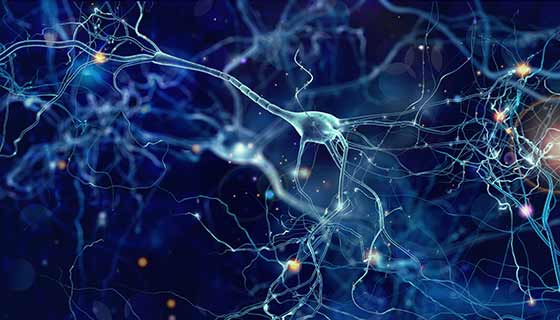Meniere Disease
What is Ménière disease?
Ménière disease is a balance disorder. It’s caused by an abnormality in part the inner ear called the labyrinth. Fluid build-up here can cause a severe spinning sensation (vertigo) and affect the hearing.
What causes Ménière disease?
The labyrinth holds the organs of balance and hearing. It’s made up of 2 parts:
- Bony labyrinth
- Membranous labyrinth
The membranous labyrinth is encased in bone and contains a fluid called endolymph.
When the head moves, the endolymph also moves. This causes nerve receptors in the membranous labyrinth to signal the brain about the body's motion.
Excess endolymph buildup in the labyrinth can interfere with the normal balance and hearing signals between the inner ear and the brain. This is Ménière disease.
Fluid buildup in this area may be caused by:
- Allergies
- Abnormal immune system response
- Abnormal fluid drainage caused by a blockage
- Head injury
- Genetic risk
- Migraine headaches
- Viral infection
Most often, Ménière disease is caused by more than one factor.
What are the risk factors for Ménière disease?
Anyone can get Ménière disease. It’s more common in people in their 40s and 50s. There is no cure.
What are the symptoms of Ménière disease?
These are the most common symptoms of Ménière disease. Symptoms can happen suddenly, and may happen daily or infrequently. The symptoms are most often in one ear but can affect both ears.
- Vertigo is the most debilitating symptom and is a severe spinning sensation that can cause:
- Severe nausea
- Vomiting
- Sweating
Other symptoms may include:
- Tinnitus (ringing in the ears)
- Loss of hearing or muffled hearing
- Loss of the ability to hear low frequencies
- Pressure in the affected ear
- Loss of balance
- Headaches
The symptoms of Ménière disease may look like other conditions or health problems. Always check with your healthcare provider for a diagnosis.
How is Ménière disease diagnosed?
Along with a complete medical history and physical exam, the healthcare provider may request:
- Hearing test. This will help find any changes in hearing related to disease in the middle ear or other causes.
- Balance test
- Magnetic resonance imaging (MRI) scans. An MRI is done to determine if a tumor is present.
- Electrocochleography (ECOG). This test measures electrical activity of the inner ear.
You may see specialists including:
- Audiologist
- An ear nose and throat specialist (otolaryngologist)
- Neurologist
How is Ménière disease treated?
Your healthcare provider will figure out the best treatment based on:
- How old you are
- Your overall health and medical history
- How sick you are
- How well you can handle specific medicines, procedures, or therapies
- How long the condition is expected to last
- Your opinion or preference
Treatment may include:
- Surgery. Several types of surgery are effective for treating the balance problems of Ménière disease.
- Medicine. Medicines may be given to control allergies, reduce fluid buildup, reduce dizziness, or improve the blood circulation in the inner ear.
- Change in diet. Eliminating caffeine, chocolate, alcohol, and salt may reduce the frequency and intensity of symptoms.
- Behavior therapies. Reducing stress may lessen the severity of the disease symptoms.
- Hearing Aids to treat hearing impairments.
There is no cure.
What are the complications of Ménière disease?
Vertigo is one of the main symptoms of Ménière disease. It can cause falls, trouble driving, or prevent other normal activities of daily living. Permanent hearing loss may also happen. These problems can cause depression and anxiety. It may be hard to work or interact with your family and friends.
Key points about Ménière disease
- Ménière disease is a disorder caused by build of fluid in the chambers in the inner ear.
- It causes symptoms such as vertigo, nausea, vomiting, loss of hearing, ringing in the ears, headache, loss of balance, and sweating.
- Treatment choices may depend on the severity of the disease and you should talk with your healthcare provider about what choices are right for you.
Next steps
Tips to help you get the most from a visit to your healthcare provider:- Know the reason for your visit and what you want to happen.
- Before your visit, write down questions you want answered.
- Bring someone with you to help you ask questions and remember what your provider tells you.
- At the visit, write down the name of a new diagnosis, and any new medicines, treatments, or tests. Also write down any new instructions your provider gives you.
- Know why a new medicine or treatment is prescribed, and how it will help you. Also know what the side effects are.
- Ask if your condition can be treated in other ways.
- Know why a test or procedure is recommended and what the results could mean.
- Know what to expect if you do not take the medicine or have the test or procedure.
- If you have a follow-up appointment, write down the date, time, and purpose for that visit.
- Know how you can contact your provider if you have questions.



